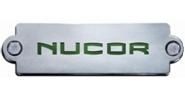Market Data

September 24, 2013
Steel Industry Takes Stance Against Revision of Buy America Laws
Written by Sandy Williams
U.S. steel industry members are challenging proposed changes to Federal Highway Administration (FHWA) Buy America laws that will affect manufactured products, ferry boat equipment, and pig iron and processed, pelletized, and reduced iron ores.
The FHWA sought comments from the public regarding the continued, need, in whole or part for the general waivers on the products and the continuing need for the FHWA’s minimal use threshold.
In a letter earlier this month, the Steel Manufacturers Association called on the FHWA to ensure that “steel and iron that is used in taxpayer-funded projects is produced in the United States” but noted that pig iron is a raw material used by the steel industry that must be imported due to lack of sufficient domestic supply. As such, SMA urges FHWA to maintain its waiver for pig iron, and processed, pelletized, and reduced iron ore but said the requirement that steel be “melted and poured” in the U.S. to be Buy America compliant should be maintained.
Nucor Corp also weighed in on the issue with a letter dated September 6, 2013 stating, “Nucor believes that strong Buy America laws are vital to the health of the U.S. Steel industry as well as the U.S. economy, generally.”
Nucor said the original 1983 waiver on manufactured products did not cover steel and iron products but was reinterpreted in a December 21, 2012 memo by the FHWA to include miscellaneous steel or iron products including “cabinets, covers, shelves, clamps, fittings, sleeves, washers, bolts, nuts, screws, tie wire, spacers, chairs, lifting hooks, faucets, door hinges, etc.” Waiving protection on the products, said Nucor, “fundamentally alters the scope of the waiver, turning it on its head.”
Nucor went on to add, “Weakening the long-standing Buy America requirements potentially undermines the health of the U.S. Steel industry and undercuts the job-creating potential of the Buy America program. Indeed, FHWA’s new interpretation, if maintained, could result in the outsourcing of critical U.S. manufacturing jobs a time when job creation is more important than ever.”
SMA president Thomas A Danjczek in his letter to the FHWA agreed, saying, “With respect to the manufactured products waiver, all steel and iron products that are used in Federal-aid highway projects should be manufactured in the United States. SMA urges FHWA to restore the intended scope of the manufactured products waiver to ensure that all steel and iron products are subject to Buy America coverage. Exempting ‘miscellaneous steel and iron components,’ as discussed in FHWA’s December 21, 2012 memorandum, undermines the intent of Buy America, and limits the stimulative impact of the program.”
Nucor also concurred with the FHWA that Buy America should be applied to “vehicles, including cars, buses, vans, railcars and locomotives, that are acquired or retrofitted with FHWA funds” but urges that the policy extend beyond “assembled in America” to requiring that the steel products used to produce such vehicles be manufactured in the U.S.







